Earth
Sign up for our newsletter
We summarize the week's scientific breakthroughs every Thursday.
-
 Health & Medicine
Health & MedicineMicroplastics are in our bodies. Here’s why we don’t know the health risks
Researchers are racing to try to understand how much humans are exposed and what levels are toxic.
-
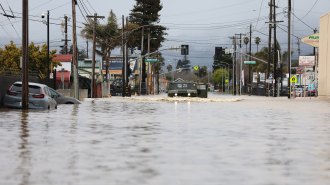 Climate
ClimateBy flying over atmospheric rivers, scientists aim to improve forecasts
Drenching atmospheric rivers are slamming the U.S. West Coast, bringing needed water but dangerous flooding. Here’s how scientists study these storms.
-
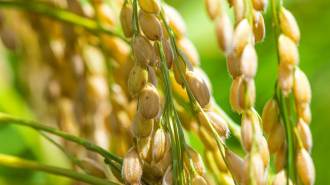 Agriculture
AgricultureMartian soil may have all the nutrients rice needs
Experiments hint that in the future, we might be able to grow the staple food in the soils of the Red Planet.
By Nikk Ogasa -
 Oceans
Oceans50 years ago, researchers discovered a leak in Earth’s oceans
An analysis of oceanic rocks hinted that ocean water drains into Earth’s mantle. How much makes it back into the ocean remains unclear.
-
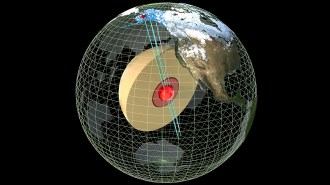 Earth
EarthEarth’s inner core may be more complex than researchers thought
Seismic waves suggest that Earth has a hidden heart, a distinct region within the solid part of the planet’s core.
-
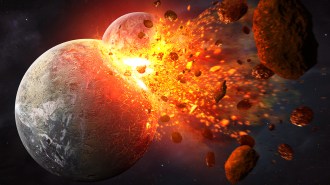 Earth
EarthA moon-forming cataclysm could have also triggered Earth’s plate tectonics
Deeply buried remnants of a hypothetical planet that slammed into Earth 4.5 billion years ago might have set subduction into motion.
By Nikk Ogasa -
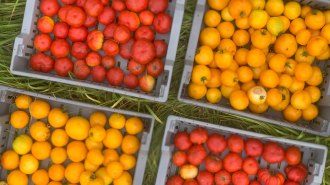 Agriculture
AgricultureDry farming could help agriculture in the western U.S. amid climate change
Some farmers in the western United States are forgoing irrigation, which can save on water and produce more flavorful fruits and vegetables.
-
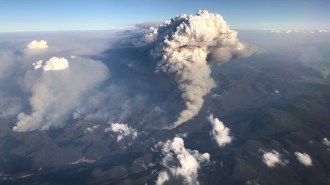 Climate
ClimateHow wildfires deplete the Earth’s ozone layer
Scientists detail the chain of chemical reactions that occur when wildfire smoke enters the stratosphere.
-
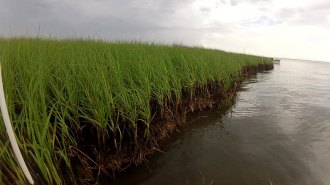 Environment
EnvironmentThe Deepwater Horizon oil spill ruined long-term shore stability
For at least eight years, the oil disaster continued to kill soil-retaining marsh plants along the Louisiana coast, accelerating shoreline loss.
-
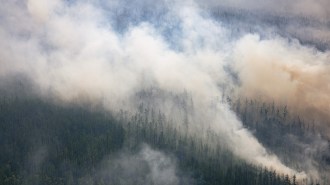 Climate
ClimateWildfires in boreal forests released a record amount of CO2 in 2021
Boreal forests store about one-third of the world’s land-based carbon. With wildfires increasing there, fighting climate change could get even harder.
By Nikk Ogasa -
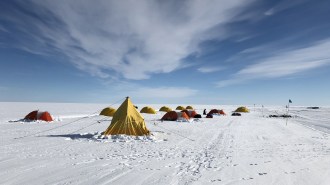 Climate
ClimateMany Antarctic glaciers are hemorrhaging ice. This one is healing its cracks
Scientists have explored the recesses of an Antarctic glacier that is currently stable, helping improve predictions of the continent’s fate.
By Douglas Fox -
 Climate
ClimateAn incendiary form of lightning may surge under climate change
Relatively long-lived lightning strikes are the most likely to spark wildfires and may become more common as the climate warms.
By Nikk Ogasa